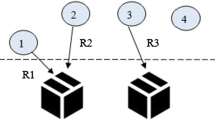Abstract
Restaurateurs manage the customer experience of a restaurant through the overall rating of reviews on platforms such as Yelp, Google, and TripAdvisor. The challenge is to identify aspects of the restaurant to improve based on a deeper analysis of restaurant reviews. This research proposes a Novel Aspect-Based Deep Learning Framework (ADLF) to improve the customer experience of restaurants based on the value of Key Performance Indicators (KPIs) derived from the sentiment of restaurant reviews. The proposed framework combines an information retrieval algorithm, Okapi BM25 and a deep learning model, word2vec-cnn. The model is trained on the Yelp dataset that consists of 600,000 reviews. Key Performance Indicator’s (KPIs) are identified to help a restaurateur improve customer experience based on the sentiment of restaurant reviews. Five predetermined aspects namely flavor, cost, ambience, hygiene, and service are used to create the KPIs. Results demonstrate that diners express positive sentiment about “service” and negative sentiment about “cost”. The proposed framework achieved an accuracy of 94% and AUROC of 0.98. This novel framework, ADLF, shows promise for providing restaurateurs with a way to mine the unstructured textual opinion of their customers into KPIs that allows them to improve the customer experience of a restaurant.
Access this chapter
Tax calculation will be finalised at checkout
Purchases are for personal use only
Similar content being viewed by others
References
Dellarocas, C., Zhang, X.M., Awad, N.F.: Exploring the value of online product reviews in forecasting sales: the case of motion pictures. J. Interact. Marketing 21(4), 23–45 (2007)
Zhu, F., Zhang, X.M.: Impact of online consumer reviews on sales: the moderating role of product and consumer characteristics. J. Market. 74(2), 133–148 (2010)
Tang, F., Fu, L., Yao, B., Xu, W.: Aspect based fine-grained sentiment analysis for online reviews. Inf. Sci., 488, 190–204 (2019). http://www.sciencedirect.com/science/article/pii/S0020025519301872
López, M., Valdivia, A., Martínez-Cámara, E., Luzón, M.V., Herrera, F.: E2SAM: Evolutionary ensemble of sentiment analysis methods for domain adaptation. Inf. Sci. 480, 273–286 (2019). http://www.sciencedirect.com/science/article/pii/S0020025518309873
Hyun, D., Park, C., Yang, M.-C., Song, I., Lee, J.-T., Hwanjo, Y.: Target-aware convolutional neural network for target-level sentiment analysis. Inf. Sci. 491, 166–178 (2019). https://doi.org/10.1016/j.ins.2019.03.076
Heikal, M., Torki, M., El-Makky, N.: Sentiment analysis of Arabic Tweets using deep learning. Procedia Comput. Sci. 142, 114–122 (2018)
Ghulam, H., Zeng, F., Li, W., Xiao, Y.: Deep learning-based sentiment analysis for roman urdu text. Procedia Comput. Sci. 147, 131–135 (2019)
Alharbi, A.S.M., De Doncker, E.: Twitter sentiment analysis with a deep neural network: an enhanced approach using user behavioral information. Cognit. Syst. Res. 54, 50–61 (2019)
Chakraborty, K., Bhattacharyya, S., Bag, R., Hassanien, A.E.: Comparative sentiment analysis on a set of movie reviews using deep learning approach. In: Hassanien, A.E., Tolba, M.F., Elhoseny, M., Mostafa, M. (eds.) AMLTA 2018. AISC, vol. 723, pp. 311–318. Springer, Cham (2018). https://doi.org/10.1007/978-3-319-74690-6_31
Seo, S., Kim, C., Kim, H., Mo, K., Kang, P.: Comparative study of deep learning-based sentiment classification. IEEE Access 8, 6861–6875 (2020)
Yoon K.: Convolutional neural networks for sentence classification. arXiv preprint arXiv:1408.5882 (2014)
Ouyang, X., Zhou, P., Li, C.H., Liu, L.: Sentiment analysis using convolutional neural network. In: Proc. IEEE 2015 IEEE International Conference on Computer and Information Technology; Ubiquitous Computing and Communications; Dependable, Autonomic and Secure Computing; Pervasive Intelligence and Computing, pp. 2359–2364 (2015)
Kalchbrenner, N., Grefenstette, E., Blunsom, P.: A convolutional neural network for modelling sentences. arXiv:1404.2188 (2014). https://arxiv.org/abs/1404.2188
Young, T., Hazarika, D., Poria, S., Cambria, E.: ‘Recent trends in deep learning based natural language processing.’ IEEE Comput. Intell. Mag. 13(3), 55–75 (2018)
Mikolov, T., Chen, K., Corrado, G., Dean, J., Sutskever, L., Zweig, G.: word2vec. Google Scholar (2014)
Le, H.T., Cerisara, C., Denis, A.: Do convolutional networks need to be deep for text classification? In: Proceedings of Workshops 22nd AAAI Conference of Artificial Intelligence. pp. 1–8 (2018)
Collobert, R., Weston, J., Bottou, L., Karlen, M., Kavukcuglu, K., Kuksa, P.: Natural language processing (almost) from scratch. J. Mach. Learn. Res. 12, 2493–2537 (2011)
Hinton, G., Srivastava, N., Krizhevsky, A., Sutskever, I., Salakhutdinov, R.: Improving neural networks by preventing co-adaptation of feature detectors. CoRR, abs/1207.0580 (2012)
Panthati, J., Bhaskar, J., Ranga, T.K., Challa, M.R.: Sentiment analysis of product reviews using deep learning. In: Proceedings of the International Conference on Advances in Computing, Communications and Informatics (ICACCI) (2018)
Yelp restaurant review dataset [Online]. https://www.yelp.com/dataset/documentation/main
Manning, C.D., Raghavan, P., Schutze, H.: Introduction to Information Retrieval,” Cambridge, United Kingdom: Cambridge University Press, ISBN 978–0–521–86571–5 (2008)
Robertson, S., Walker, S.: Okapi/keenbow at trec8. In: The Eighth Text Retrieval Conference (TREC8), page 151162. Gaithersburg, MD, NIST (2000)
Amazon phone review dataset [Online]. https://www.kaggle.com/PromptCloudHQ/amazonreviews-unlocked-mobile-phones/data
Luo, Y., Xiaowei, X.: Comparative study of deep learning models for analyzing online restaurant reviews in the era of the COVID-19 pandemic. Int. J. Hospital. Manag. 94, 102849 (2021). https://doi.org/10.1016/j.ijhm.2020.102849
Author information
Authors and Affiliations
Corresponding author
Editor information
Editors and Affiliations
Rights and permissions
Copyright information
© 2021 Springer Nature Switzerland AG
About this paper
Cite this paper
Tewari, S., Pathak, P., Stynes, P. (2021). A Novel Aspect-Based Deep Learning Framework (ADLF) to Improve Customer Experience. In: Srirama, S.N., Lin, J.CW., Bhatnagar, R., Agarwal, S., Reddy, P.K. (eds) Big Data Analytics. BDA 2021. Lecture Notes in Computer Science(), vol 13147. Springer, Cham. https://doi.org/10.1007/978-3-030-93620-4_10
Download citation
DOI: https://doi.org/10.1007/978-3-030-93620-4_10
Published:
Publisher Name: Springer, Cham
Print ISBN: 978-3-030-93619-8
Online ISBN: 978-3-030-93620-4
eBook Packages: Computer ScienceComputer Science (R0)




